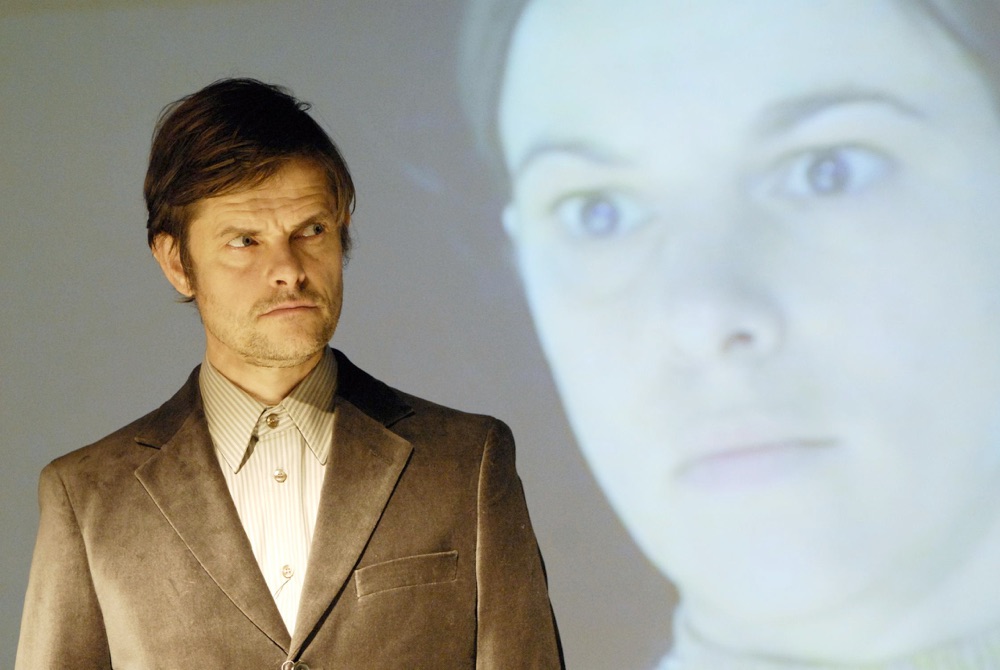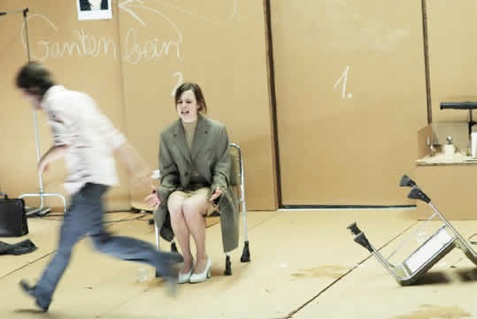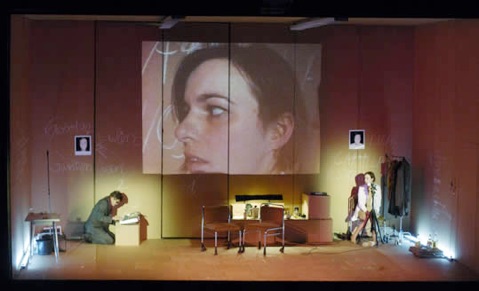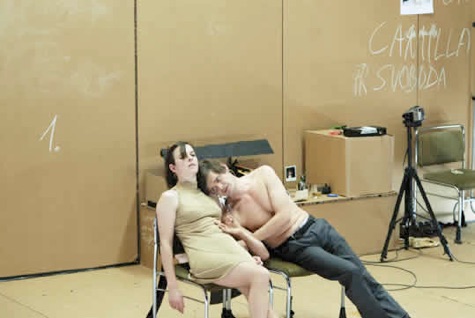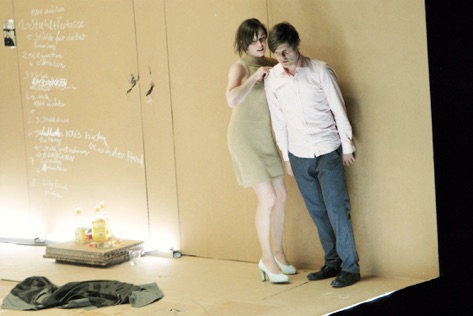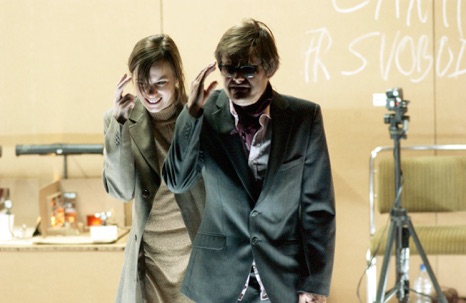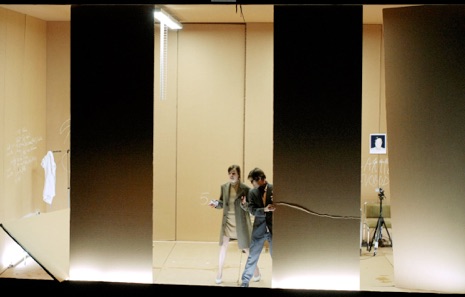GANTENBEIN
Lars Rudolph and Annika Kuhl live on the stage, trapped within its formal confines, and to pass the time they try on fictional characters like clothes.
Lars decides to be Gantenbein, a man who pretends he is blind. Annika is his wife, the actress Lila.
When Lars becomes Enderlin, a man who won't take up his new professorship at Harvard because he'll have to leave behind the wife of his associate Svoboda, with whom he is having an affair, Annika decides to become Svoboda's wife, so that she is able to meet Enderlin... but it seems Svoboda's wife might also be Lila.
As Gantenbein struggles to reveal his true self, he sees redemption might lie in Camilla, his manicurist, who loves to share stories with him, and it only when these innocent tales they tell each other begin to suddenly take on a factual life of their own, that he is left with a choice: should he live forever as Gantenbein and lose the one thing he is sure of, or destroy everything and rescue Camilla from the fate she has told him awaits her?
Gantenbein is about the uncertainty of identity. A man wants to invent for himself an identity he is happy with. He also wants to invent a wife, but his wife wants a life of her own. In the final analysis we wonder who is playing who: are Lars and Annika really in control of the characters they create, or is there perhaps another voice outside the world of the play controlling them?
Adapted from Max Frisch's novel by Glen Neath
Directed by John Hardwick
Designed by Mascha Mazur
Production photographs by Thomas Aurin
Performed in German
Performances:
Hebbel am ufer HAU 1, Berlin, Germany, 6-10 December, 2006
Theaterhaus Gessnerallee, Zurich, Switzerland, 30 March until 1 April, 2007
Hebbel am ufer HAU 1, Berlin, Germany, 8-10 May, 2007
